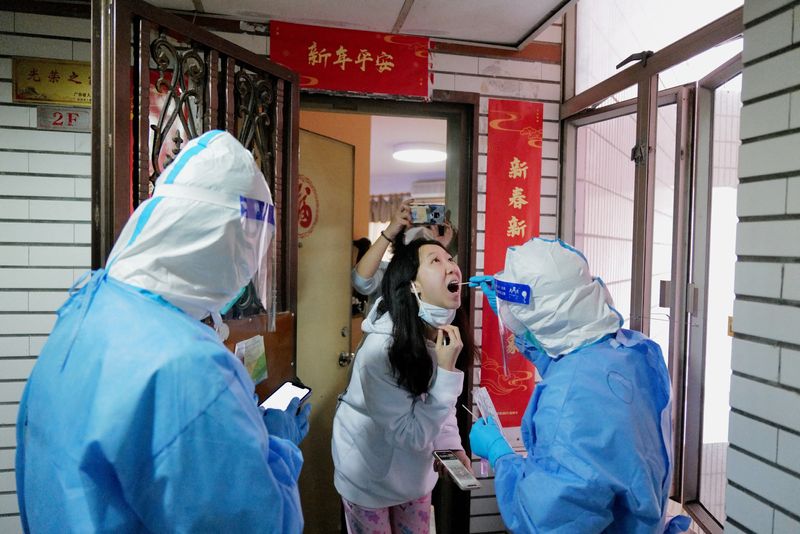BEIJING (Reuters) - China's manufacturing hub of Shenzhen is starting to get back on its feet after being hit by shutdowns in a recent COVID-19 outbreak, but many smaller firms worry about their near-term outlook, clouded by uncertain demand, Securities Times reported.
Shenzhen's recent "war" on COVID-19 has hurt up to 93% of the local small and medium-sized companies surveyed by the state-controlled newspaper, with many suffering production disruptions due to shutdowns, interruptions in supply chains, and delays in order executions.
Shenzhen allowed businesses and factories to restart operations on March 21 after authorities declared the latest outbreak had been brought under control.
The city, which has grappled with multiple outbreaks so far this year, conducted three rounds of mass testing in March after a spike in infections.
The outbreaks were modest by international standards, but Shenzhen authorities were swift to implement measures including business shutdowns under China's so-called "dynamic" zero-COVID policy.
In the Securities Times survey, 93% of the 97 companies that responded said the epidemic had raised their operating expenses, including labour, logistics and raw materials costs.
About half of them had 100 to 500 employees, while 26% commanded a labour force of over 500.
Compounding their woes, they said, has been difficulty in accessing financing.
More worrying than the short-term effect of the shutdowns is the long-term contraction in demand caused by the epidemic, the newspaper warned, citing a "profound" impact on Chinese demand from COVID-19.
Companies complained about changes in consumer behaviour from delays in surgical operations to purchases of new mobile phones.
Data on China's factory and services sector for March due out in coming days are expected to reflect the COVID-related pain.
The epicentre of China's COVID containment efforts has since moved to Shanghai, where the megacity of 26 million residents is facing its worst flare-up since China's initial 2020 outbreak.
Beijing has vowed to stabilise economic growth in a year when President Xi Jinping is expected in the autumn to secure a third term as leader in a once-in-five-years congress of the ruling Communist Party.

"Although Beijing on some occasions has also called to minimise the economic cost of (its zero-COVID strategy), local government officials in practice have been ratcheting up mandatory mass testing and social distancing measures in fear of being accused of dereliction of duty," Nomura said.
"The consequence is that China's economy faces the most severe pressure since the spring of 2020."